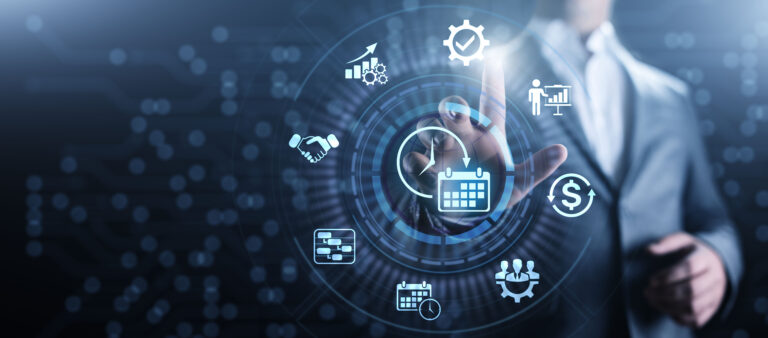While 2020 brought new, unprecedented times with it, the one consistency that we’re thrilled to see is the annual technology predictions from Gartner. The strategic trends that Gartner outlines echo the inner happenings of the industry, and in 2021, the top 9 strategic trends that companies need to explore will catapult traditional environments into new innovative spaces.
“As organizations journey from responding to the COVID-19 crisis to driving growth, they must focus on the three main areas that form the themes of this year’s trends: people centricity, location independence and resilient delivery. Taken together, these trends create a whole that is larger than its individual parts and focus on social and personal demand from anywhere to achieve optimal delivery.” said Brian Burke, research vice president at Gartner.
This year, the Smartz Solutions team – a global CCaaS software development company – weighed in on these trends and what this means for the global and local markets.
Internet of Behaviours
The internet of Behaviors (IoB) is the technological culmination of the times – combining existing technologies (facial recognition, location tracking and big data) and behavioral events.
More businesses are using this data to influence human behaviours. IoB can be leveraged in a multitude of ways, and Gartner predicts that by the end of 2025, more than 50% of the population will be subject to at least one IoB programme.
Total Experience
Total experience is an expansion of Gartner’s 2019 trend projection: multiexperience. Total experience connects the customer, employee and user experiences. Gartner predicts that over the next three years, businesses that prioritize a total experience strategy will outperform their competitors in the critical satisfaction metrics.
With interactions becoming more virtual, distributed and mobile – mostly due to the pandemic – total experience will empower businesses to achieve success on new experiential disruptors and make technological leaps.
Privacy-Enhancing Computation
Businesses have prioritized becoming and remaining data-driven for the past couple of years, but while the push to collect and analyze data, there has been an even greater demand for privacy and compliance. Privacy-enhancing computation protects data in use while maintaining privacy or secrecy online common data-at-rest security measures.
According to Gartner, by 2025, 50% of large organizations will implement privacy-enhancing computation to process data in untrusted environments and multiparty data analytics use cases.
Distributed Cloud
Distributed cloud is the distribution of public cloud services to different physical locations in which the operation, governance and evolution remain the responsibility of the public cloud provider. This means it offers a flexible environment for a variety of business scenarios including low-latency, data residency requirements and data cost-reduction.
By 2025, Gartner predicts that most cloud service platforms will provide at least one distributed cloud service that executes at the point of need. This will address the need for users to have cloud computing resources closer to the location where the data and business activities are taking place.
Anywhere Operations
Anywhere Operations offer a unique value-add experience across five core areas: secure remote access, cloud and edge infrastructure, collaboration and productivity, automation to support remote operations and quantification of the digital experience.
Anywhere Operations is designed to support customers, empower employees and manage the deployment of services. Gartner predicts that 40% of businesses will have applied anywhere operations to deliver and optimize blended virtual and physical customer and employee experience by 2023.
Cybersecurity Mesh
No matter where a person is located, cybersecurity mesh ensures digital assets can be securely accessed. It allows identity to become the security perimeter through decoupling policy enforcement from policy decision making via a cloud delivery model.
“As anywhere operations continues to evolve, the cybersecurity mesh will become the most practical approach to ensure secure access to, and use of, cloud-located applications and distributed data from uncontrolled devices.” – Brian Burke, research vice president at Gartner.
Gartner predicts that by 2025, cybersecurity mesh will support more than 50% of digital access control requests.
Intelligent Composable Business
Intelligent composable business transforms decision-making by accessing and reacting on information in a better, more flexible method. Intelligent composable business will allow redesigned digital business moments, new business models, autonomous operations and new products, services and channels to exist.
AI Engineering
AI engineering rests on three fundamental principles — DataOps, ModelOps and DevOps. A robust AI engineering strategy will facilitate the performance, scalability, interpretability and reliability of AI models while delivering the full value of AI investments.
Gartner research showed that only 53% of projects make it from artificial intelligence (AI) prototypes to production.
Hyperautomation
While hyperautomation is not a new concept and has been trending for the past few years, it was the push of the pandemic’s outbreak that increased the demand for everything to be “digital-first”. Hyperautomations has, therefore, become a prioritized operational initiative.
The drive to automate as much as possible as quickly as possible will be a trend that infiltrates most businesses – both big and small.
The demand to meet your customers’ expectations will continue to grow in 2021. Through these trends and the implementation of them, businesses can hope to achieve customer experience success and technological innovation.

